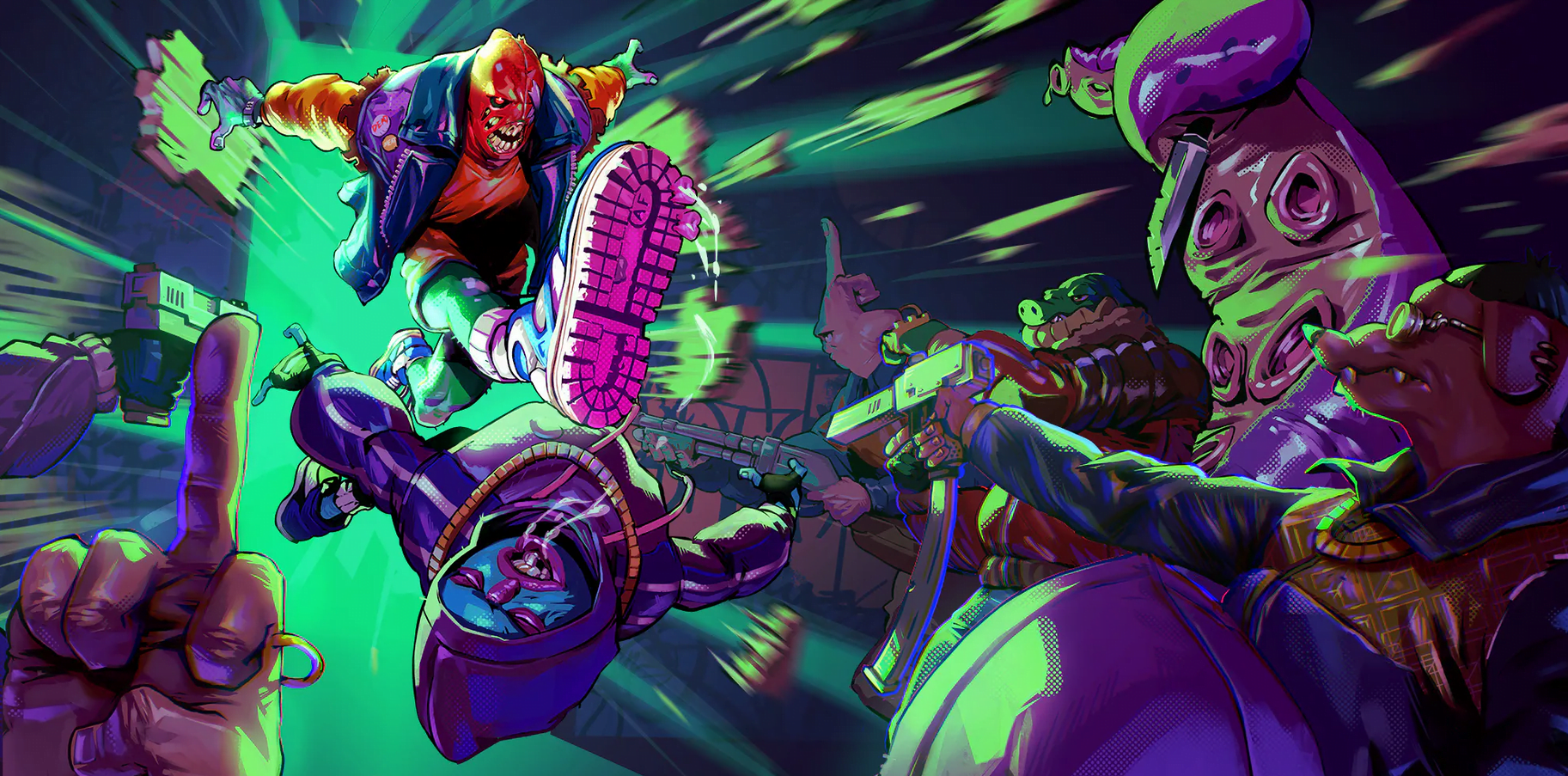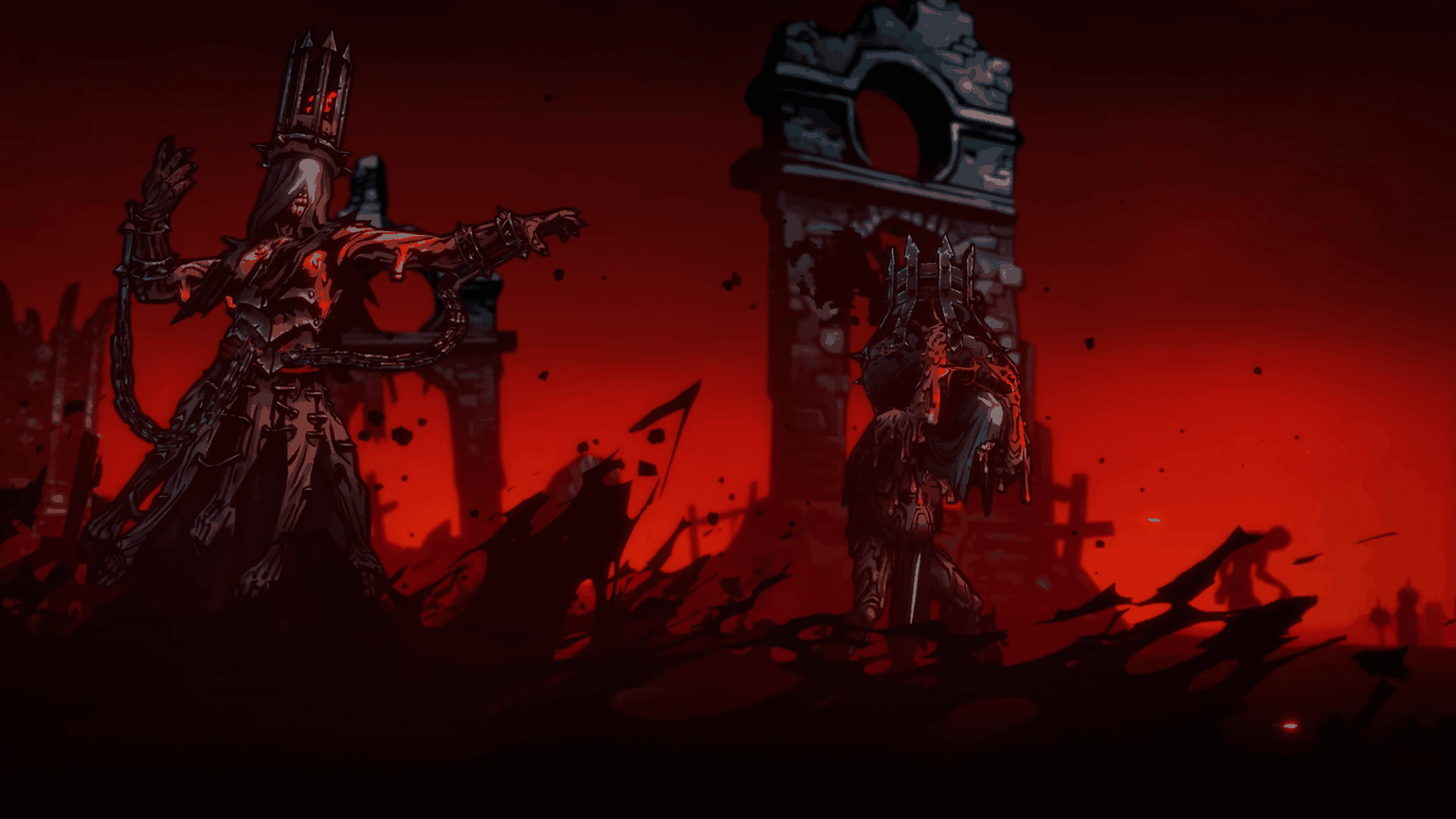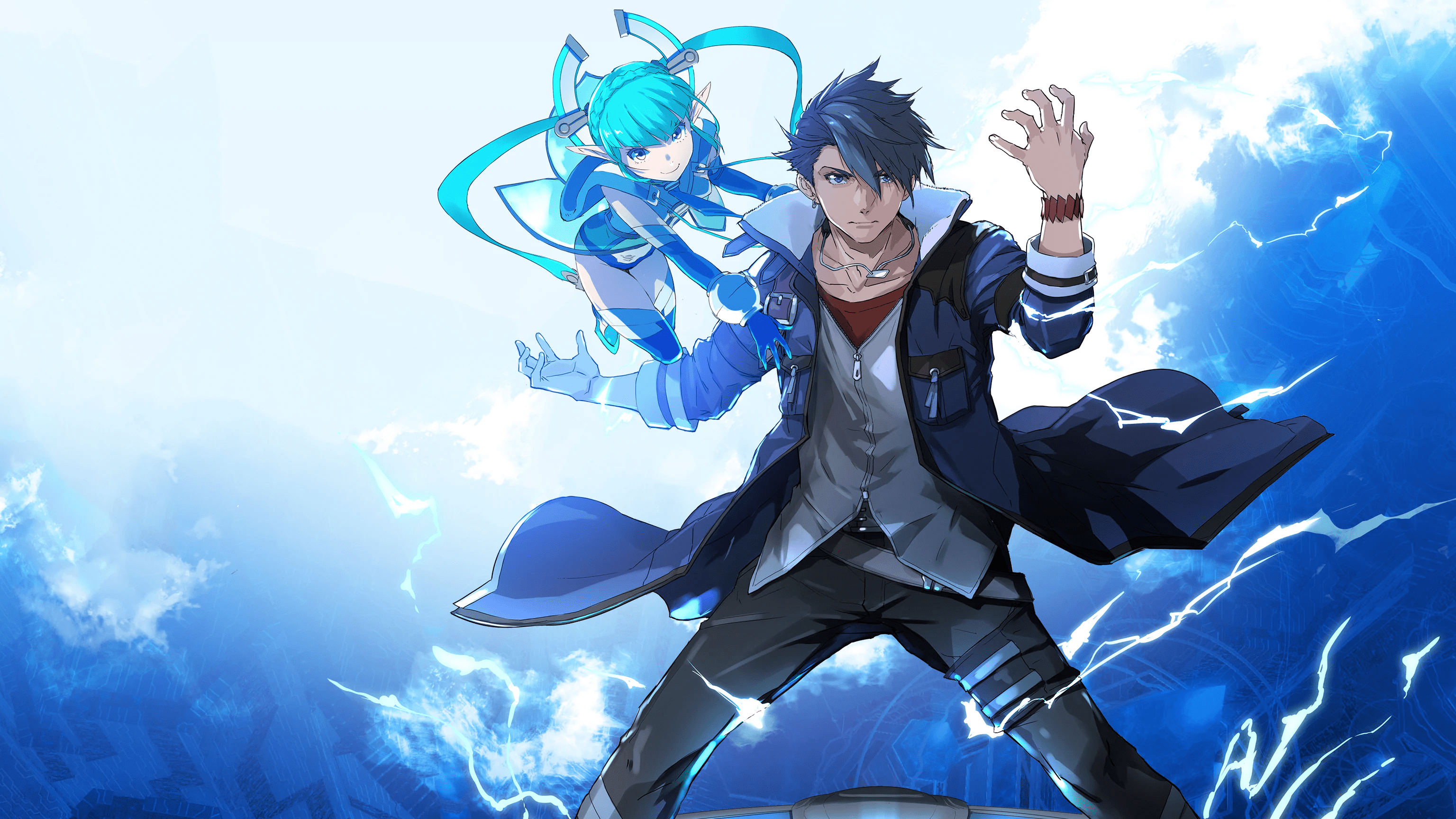Furi embodies both the best and worst qualities of boss fights. At its best, Furi is stylish and exciting; a series of challenging but fair fights that act as a fantastic example of good boss design. At its worst, it’s a frustrating slog that equates difficulty with sheer overwhelming odds; a game that punishes you for anything less than pin-point perfection on every move. Its best qualities often outweigh its lesser ones, the highs of its long, grueling scuffles proving to be a satisfying challenge. But it when it falters, boy does it falter.
Furi is a third-person action game/twin-stick bullet hell shooter boss rush from The Game Bakers. It casts you in the role of The Stranger, a mysterious swordsman who’s been locked up in a very elaborate prison for reasons unknown. Tortured day in and day out by one of the jailers, his existence is a miserable one. Then one day a mysterious man wearing a large purple rabbit hat, referred to as The Voice in the credits, frees you as part of his own escape plan.
From there, you fight your way through the many powerful guards stationed here until you reach the jailer and earn your freedom. The story remains rather thin throughout, sticking to vague statements about your character and your partner’s motivations all the way through to the end, but the presentation is slick and delivered well. It has a great sense of style. From its anime-inspired characters and neon-coated visuals, to its synth soundtrack, the game is a constant delight to look at and listen to. It’s a big part of what makes the battles so much fun to partake in. The hectic speed of battle is enough to keep it engaging, but coupled with all the visual flair, it makes each fight just as cool to watch unfold as they are to play.

For as fast as the game looks in motion, however, the act of play is far more technical. Furi makes it clear from the start that you can’t play recklessly. Bosses have small windows of vulnerability. Try running up to one and slashing away and they’ll either jump away or counterattack. A harsh lesson you receive frequently, as those vulnerability states don’t always telegraph themselves. The game instead encourages you to play defensively; to dodge and parry enemy strikes and retaliate only when it’s safe.
Learning the flow of battle is a long, difficult process. As the bosses get more complicated, that window of opportunity becomes tighter, their attacks requiring a ton more precision to deflect. But to Furi’s credit, it goes out of its way to communicate the proper timing on parries and make sure you have enough lead time to suddenly dodge attacks. Every time your adversary is about to strike, a flash of light appears along with a quick sound cue. Parry or dodge as soon as you see or hear that and you’re almost always guaranteed to successfully avoid damage. And it’s in your best interest to get the hang of it, as parries are your most reliable means of health recovery.
It’s a clever move, one that opens up a lot of split-second tactical decisions. Do you stay close and try to block their strikes to regain some health or keep your distance and hope to survive long enough to whittle their health down so you can refill your own health at the start of the next stage? Sometimes you’re not given a choice in the matter – it’s parry or die for at least one boss – but when you do have that choice, it leads to some incredible comebacks. A bad performance early on could suddenly turn around as you start to pick up on the enemy’s tells and patterns, a lucky parry giving you just enough of a boost to hold on long enough to finish them off. Almost all of my victories came about that way. It’s immensely satisfying to pull off.
By contrast, those moments don’t really occur during its twin-stick shooter segments. Most of the time you’re engaged in plain, protracted firefights that amount to dodging some rudimentary bullet streams. Simple stuff, but a nice dose of variety all the same. Occasionally Furi does use it in interesting ways. An early boss against an old man who can control time, for instance, begins with him retreating behind a few layers of reflective barriers. Only way to take them down is by shooting them, which also causes your shots to bounce back at you. You essentially fight yourself in that stage of the fight, as he can’t do anything to defend himself. Later, you face off against a sniper who sends drones to harass you while she fires at you from afar, forcing you to use barriers to cover your advance. Cases like this keep the shooting action exciting.

Unfortunately, they aren’t the norm. Instead of playing with the concept of ranged combat, Furi instead becomes a second-rate bullet-hell shooter. It starts off unassumingly enough by throwing waves of bullets that are easily destroyed or avoided. Then it begins unleashing all its tricks at once. Streams of indestructible orbs, shockwaves, and massive lasers all converging on you in concert is not an uncommon sight. Individually, they’re tough, but manageable. But together? Damn near impossible to survive. It’s a persistent problem with every boss that relies heavily on ranged combat, especially late-game bosses. For whatever reason, the game drops any semblance of a steady difficulty curve and goes straight to the worst kind of bullet-hell.
I got stuck on the very last boss for a long time because I simply was unable to navigate the sea of bullets and shockwaves being deployed. No matter how many attempts I made, I couldn’t figure out how to survive that onslaught. Every phase kept upping the ante, covering more and more of the small arena, leaving me with no room for error. If my timing was half a second off or I charged my dodge ever so slightly, I’d end up zooming into a stream of bullets only to be hit again by shockwaves while repositioning myself. Anytime I successfully took off one its health bars, it felt like I simply lucked out. It wasn’t a pleasant experience.
It’s shame Furi ends on such a sour note because the rest of the game is great. Save for a couple exceptions, it strikes a fine balance on difficulty. Just hard enough to create tense battles, but not so much that it feels punishing. It’s a satisfying game to play when it hits the right notes, which only makes its failings that much more disappointing. Furi may embody some of the best qualities of boss fights, but so too does it embody the worst.





